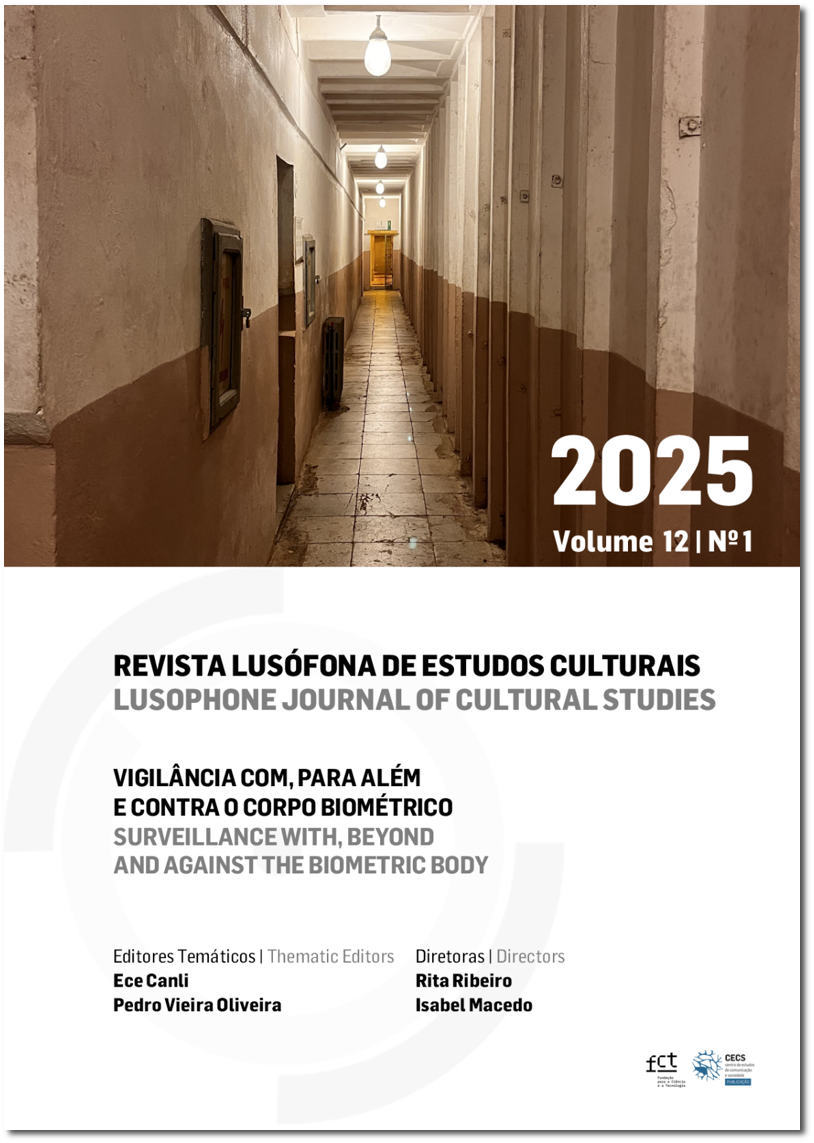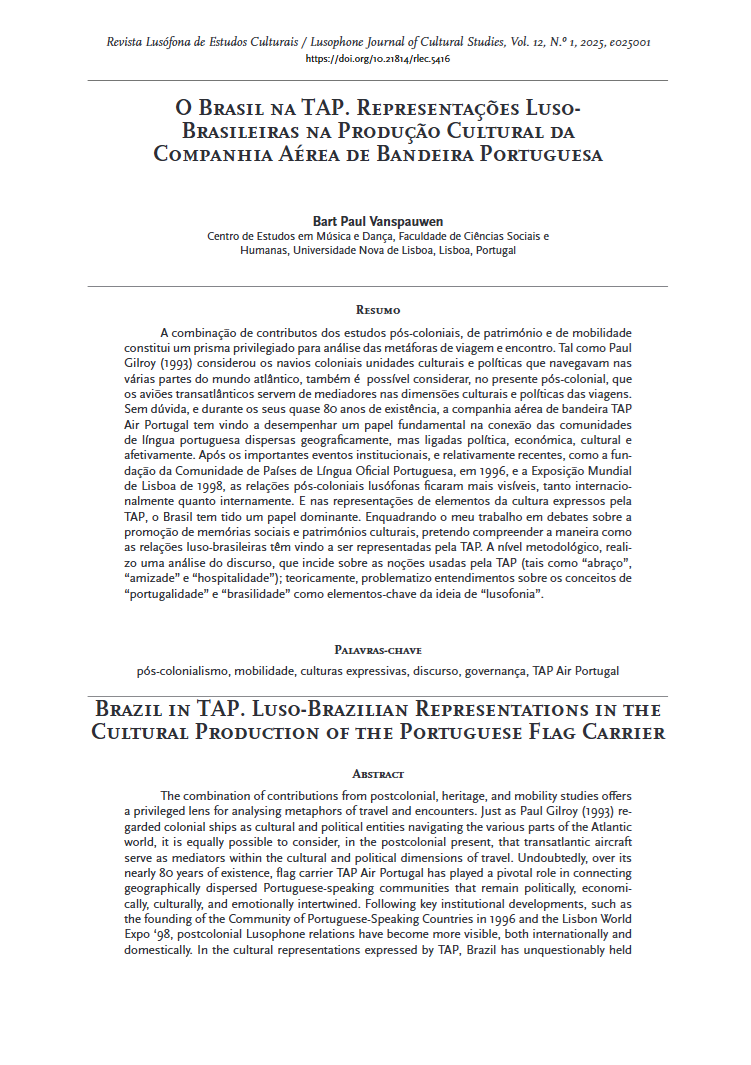
INET-md researcher, Bart Vanspauwen, authors the article “Brazil in TAP. Luso-Brazilian Representations in the Cultural Production of the Portuguese Flag Carrier“, published in open access by the Lusophone Journal of Cultural Studies.

Abstract:
The combination of contributions from postcolonial, heritage, and mobility studies offers a privileged lens for analysing metaphors of travel and encounters. Just as Paul Gilroy (1993) regarded colonial ships as cultural and political entities navigating the various parts of the Atlantic world, it is equally possible to consider, in the postcolonial present, that transatlantic aircraft serve as mediators within the cultural and political dimensions of travel. Undoubtedly, over its nearly 80 years of existence, flag carrier TAP Air Portugal has played a pivotal role in connecting geographically dispersed Portuguese-speaking communities that remain politically, economically, culturally, and emotionally intertwined. Following key institutional developments, such as the founding of the Community of Portuguese-Speaking Countries in 1996 and the Lisbon World Expo ’98, postcolonial Lusophone relations have become more visible, both internationally and domestically. In the cultural representations expressed by TAP, Brazil has unquestionably held a dominant position. The aim of this paper, framed within debates on the promotion of social memories and cultural heritage, is to gain a deeper understanding of how Luso-Brazilian relations have been represented by TAP. Methodologically, a discourse analysis is conducted, focusing on the notions used by TAP (such as “embrace”, “friendship”, and “hospitality”). Theoretically, the paper critically engages with the concepts of “Portugueseness” and “Brazilianness” as key elements of the idea of “Lusophony”.
